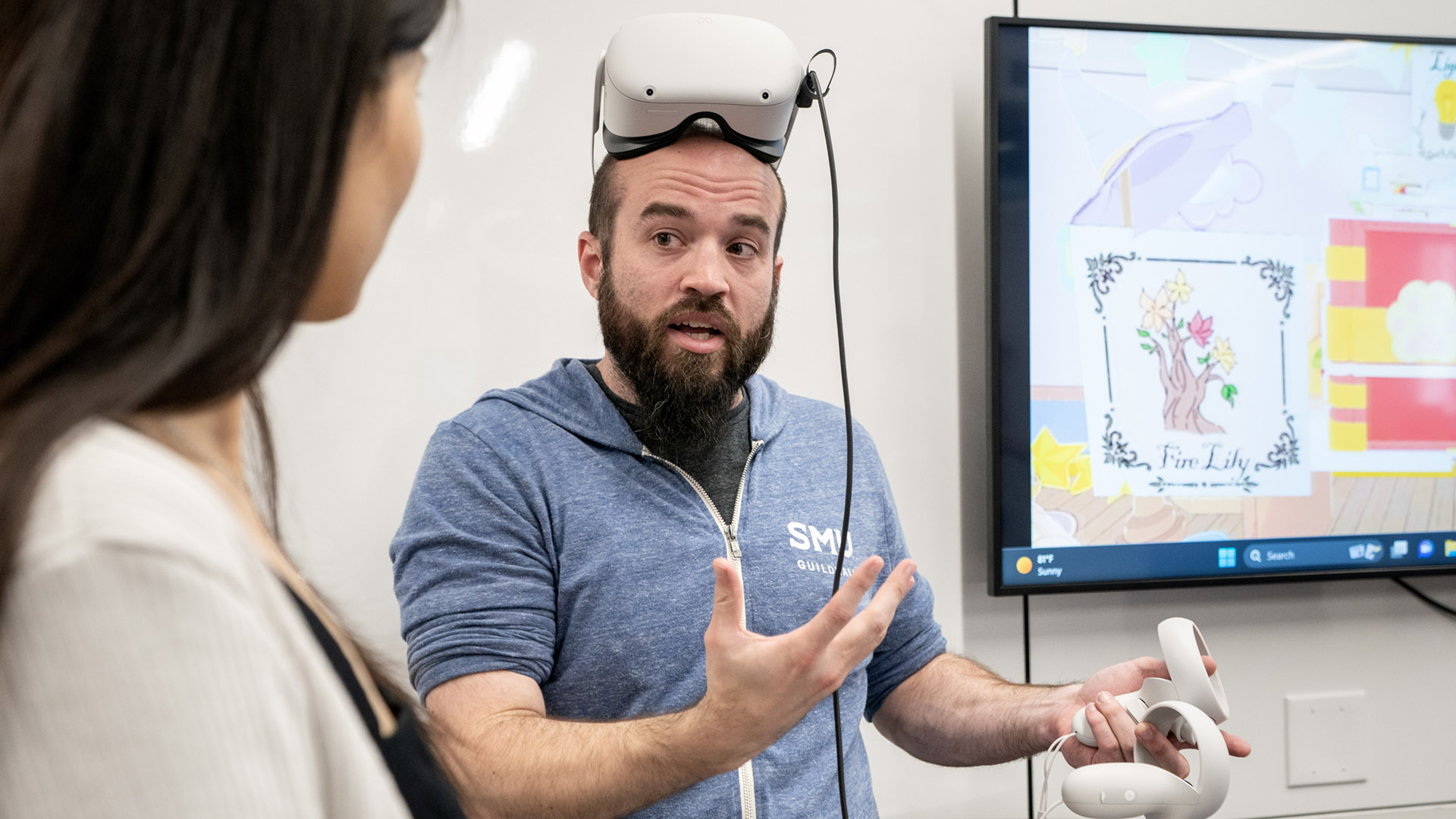Changing the Game Since 2003
SMU Guildhall was established at the specific request of gaming industry leaders to shape the dynamic, evolving video games industry by equipping the next generation of game creators with the technical skills and instincts required to successfully drive the evolution of gaming.
That mission informs every aspect of our program as we employ world-class educators, model present-day industry methods in our team-based courses, leverage two decades of industry partnerships in and out of the classroom, maintain evolving and exceptional technical and creative training with active iteration by industry leaders, and pursue changemaking collaborative research endeavors to revolutionize our industry and world.


























